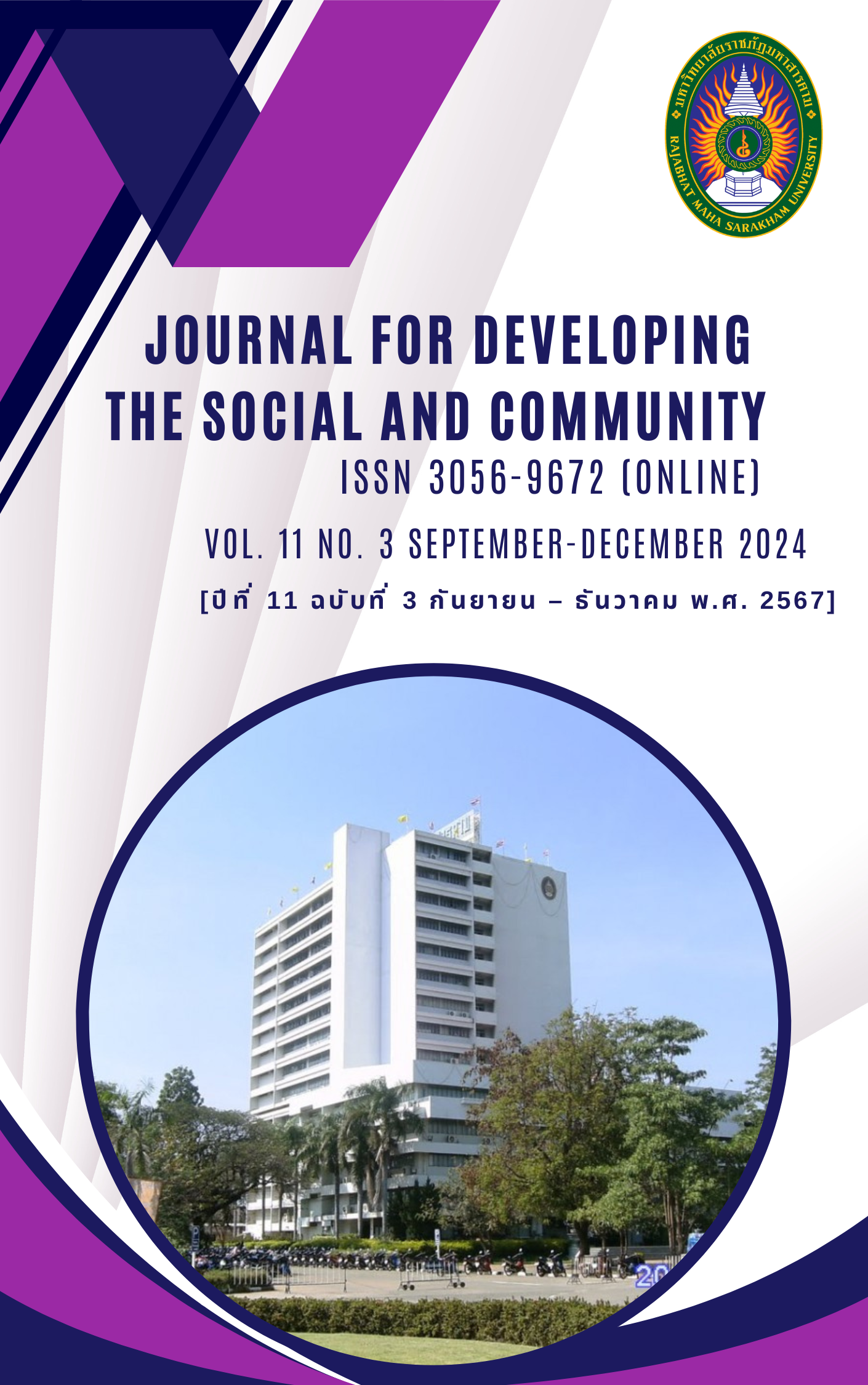Promoting organic agriculture in land reform areas to create a model for amending the law of land reform to promote organic agriculture: a case study of Sakon Nakhon Province.
Keywords:
Organic Aagriculture, Amendment, Land Refrom lawAbstract
The objectives of the research are 1) to study the guidelines for converting chemical agriculture to organic agriculture in the Land Reform Area 2) Study the laws related to land reform and organic farming both domestically and internationally 3) Study the model of amendments to promotion of organic agriculture in the Agricultural Land Reform Act, B.E. 2518. This research used mixed methods research consisting of the qualitative research that used tools including document research, in-depth interview, participation design, and hearing and the quantitative research by using the questionnaire. The study populations are farmers, involved officer, consumers, and academics.
The research found that most of farmers still use chemicals but want to change to organic farming by supporting knowledge and funds from the government. However, Thailand does not yet have an organic agriculture law while the European Union and the United States have organic agriculture laws. From data and foreign laws, this led to the amendment of the Land Reform Act to Agriculture B.E. 2518 by adding a category to promote organic agriculture. It consists of the duties and responsibilities of the Land Reform office, measures to promote organic agriculture, benefits of farmers who receive organic agriculture promotion, and criteria for revoking benefits in agricultural land reform areas.
Research suggestion is that government amend the Agricultural Land Reform Act, B.E. 2518 to establish the criteria for promotion and controlling farmers by issuing a secondary law to ensure enforcement of organic agricultural promotion sustainable in land reform area.
References
Agricultural Land Reform Act B.E. 2518 (1975). Government Gazette, Volume 94, Part 54, Special Edition, page 11.
Announcement of the Office of Agricultural Land Reform, Chiang Rai Province. (2024). Subject: Determining duties for farmers to perform regarding burning agricultural land in the land reform area. Retrieved from https://alro.go.th/uploads/org/public/files/cr. [1 March 2023]
BBC NEWS Thai. (2023). PM 2.5 dust: Thailand found the highest hotspots since 2023, found in almost 80% of conservation forests and reserved forests. Retrieved from https://www.bbc.com/thai/articles/crgzp3p1vp2o. [1 March 2023]
Constitution of the Kingdom of Thailand 2017. (6 April 2017). Government Gazette, Volume 134, Section 40, Page 1.
European Commission. (2023). Conditionality explained. Retrieved from https://agriculture.ec.europa.eu/common-agricultural-policy/income support/conditionality_en. February 5th, 2023.
European parliament. (2018). Regulation 2018/848 on organic production and labelling of organic products and repealing Council Regulation (EC) No 834/2007. Retrieved from https://eur-lex.europa.eu/eli/reg/2018/848/oj. February 5th, 2023.
Khamchantharat, P. et al. (2020). Research article on the prevalence of pesticide poisoning in farmers in Sakon Nakhon Province. The Office of Disease Prevention and Control 7 Khon Kaen, 27(2), 55-66.
Office of the Permanent Secretary, Ministry of Agriculture and Cooperatives. (2020). Basic information of Sakon Nakhon Province. Retrieved from https://www.opsmoac.go.th/sakonnakhon-dwl-files-431991791868. 1 March 2023.
U.S. Department of Agriculture, Farm Service Agency. (2023). Laws and regulations. Retrieved from https://www.fsa.usda.gov/programs-and-services/laws-and-regulations/index. [5 February 2023]
Downloads
Published
How to Cite
Issue
Section
License
Copyright (c) 2024 Journal for Developing the Social and Community

This work is licensed under a Creative Commons Attribution-NonCommercial-NoDerivatives 4.0 International License.
Articles that are published are copyrighted by the authors of the articles







